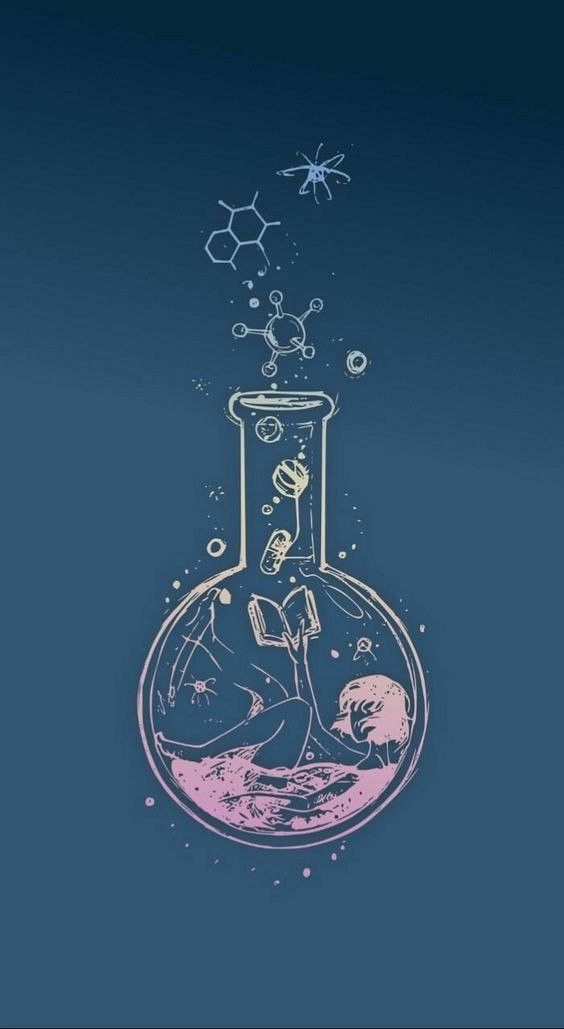
BLOG
2024年04月30日
祈りとは
祈りとは、神や仏などの超越的な存在に対して、願いや感謝の気持ちを捧げる行為です。一般的には、以下のような要素が含まれます。
- 対象: 祈りの対象は、神、仏、祖先、自然霊など、様々なものが考えられます。
- 目的: 祈りの目的は、願い事の成就、感謝の気持ちの伝達、心の平安を得ることなど、様々です。
- 方法: 祈りには、言葉による祈り、歌による祈り、踊りによる祈りなど、様々な方法があります。
祈りを行うことで、以下のような効果が期待できます。
- 心の安定: 祈りを行うことで、心が落ち着き、リラックスすることができます。
- ストレスの軽減: 祈りを行うことで、ストレスホルモンの分泌が抑制され、ストレスが軽減されます。
- 自己肯定感の向上: 祈りを行うことで、自分自身を肯定する気持ちが強くなります。
- 人間関係の改善: 祈りを行うことで、他人への思いやりや慈悲の心が育まれ、人間関係が改善されます。
呪いとは
呪いとは、神や霊的な力を使って、人に危害を加えようとする行為です。一般的には、以下のような要素が含まれます。
- 対象: 呪いの対象は、特定の人物、集団、場所など、様々です。
- 目的: 呪いの目的は、相手に病気や不幸を起こさせること、死に至らしめることなど、様々です。
- 方法: 呪いには、言葉による呪い、人形を使った呪い、呪術を使った呪いなど、様々な方法があります。
呪いを行うことで、以下のような効果が期待できます。
- 相手に危害を加える: 呪いを行うことで、相手に病気や不幸を起こさせたり、死に至らしめたりすることができます。
- 復讐を果たす: 呪いを行うことで、恨みのある相手に復讐することができます。
- 権力を得る: 呪いを行うことで、人々を支配し、権力を得ることができます。
しかし、呪いは倫理的に問題がある行為であり、以下のようなリスクも伴います。
- 自分が呪われる: 呪いを行うと、自分自身が呪い返しを受けてしまう可能性があります。
- 罪悪感に苛まれる: 呪いを行うと、罪悪感に苛まれる可能性があります。
- 社会的に孤立する: 呪いを行うと、社会的に孤立してしまう可能性があります。
祈り vs 呪い
祈り と呪いは、どちらも神や霊的な力に関わる行為ですが、以下の点が大きく異なります。
| 項目 | 祈り | 呪い |
|---|---|---|
| 目的 | 願い事の成就、感謝の気持ちの伝達、心の平安を得ることなど | 相手に危害を加えようとすること |
| 感情 | 善意、慈悲、感謝など | 怒り、憎しみ、恨みなど |
| 影響 | 祈りを捧げる人自身に良い影響を与える | 呪いの対象に悪い影響を与える |
| 倫理 | 倫理的に問題のない行為 | 倫理的に問題がある行為 |
このように、祈り と呪いは、正反対の性質を持つ行為と言えるでしょう。
祈り と呪いの科学的解析
祈り と呪い の科学的な解析は、古くから様々な分野で試みられてきました。しかし、どちらも主観的な体験や信仰に根ざした行為であり、客観的な測定や分析が困難なため、科学的な結論はまだ出ていません。
以下では、祈り と呪い の科学的解析に関する代表的な研究例と、その課題について紹介します。
祈りの科学的解析
祈りの科学的解析は、主に以下のような方法で行われています。
- ランダム化比較試験: 被験者をランダムに祈り を行うグループと行わないグループに分け、それぞれのグループの健康状態や精神状態などを比較します。
- 脳科学: 脳機能画像装置を用いて、祈り を行っている時の脳活動を観察します。
- 心理学: 祈り が心理状態に与える影響を調査します。
これらの研究により、祈り には以下のような効果がある可能性が示唆されています。
- 免疫機能の向上: 祈り を行うことで、免疫細胞の活性化や炎症の抑制などの効果が認められています。
- 痛みの軽減: 祈り を行うことで、慢性疼痛などの痛みが軽減される可能性があります。
- うつ病の改善: 祈り を行うことで、うつ病の症状が改善される可能性があります。
しかし、これらの研究はあくまでも予備的なものであり、さらに多くの研究が必要とされています。
呪いの科学的解析
呪いの科学的解析は、さらに困難な課題に直面しています。
- 倫理的な問題: 実際に人に危害を加えるような呪い の研究を行うことは倫理的に問題があります。
- 客観的な測定の難しさ: 呪い の効果を客観的に測定することは非常に困難です。
そのため、呪い の科学的解析は、主に以下のような方法で行われています。
- エスノグラフィー: 実際に呪い を行っている人々の文化や信仰を調査します。
- 実験心理学: 呪い をかけられたと被験者に思い込ませ、その後の行動や心理状態を観察します。
これらの研究により、呪い が人々の心理状態に与える影響について、ある程度の知見が得られています。
しかし、呪い が実際に人に危害を加えるような力を持っているかどうかについては、科学的な結論は出ていません。
課題と展望
祈り と呪い の科学的解析は、多くの課題を抱えています。
- 客観的な測定の難しさ: 祈り や呪い の効果を客観的に測定することは非常に困難です。
- プラセボ効果: 祈り や呪い の効果は、プラセボ効果による可能性もあります。
- 倫理的な問題: 呪い の研究は、倫理的な問題を伴います。
これらの課題を克服するためには、さらなる研究が必要です。
しかし、祈り と呪い の科学的解析は、人間の精神世界や信仰について理解を深める上で重要な役割を果たす可能性があります。今後、科学技術の発展により、これらの研究がさらに進展していくことが期待されます。
まとめ
祈り と呪い は、古くから人々の生活に深く根付いてきた行為です。科学的な解析は困難な課題を抱えていますが、近年では様々な研究が進められています。
これらの研究を通して、祈り と呪い が人間の心身に与える影響について、より深く理解することができるようになるでしょう。
呪いの科学的解析の課題
呪いの科学的解析は、祈りの科学的解析以上に多くの困難な課題を抱えています。その主な理由は以下の3つです。
1. 倫理的な問題
実際に人に危害を加えるような呪い の研究を行うことは、倫理的に問題があります。被験者に実際に危害を加えることは許されませんし、仮にそのような研究を行ったとしても、その結果を公表することは困難です。
また、呪い の研究は、人々の信仰や文化を冒涜する行為と捉えられる可能性もあります。そのため、研究者側も倫理的な配慮を怠ることができません。
2. 客観的な測定の難しさ
呪い の効果を客観的に測定することは非常に困難です。
- そもそも、呪い がかかっているかどうかを判断する基準がありません。
- 呪い の効果は、被験者の心理状態や暗示の影響を受けやすいという問題があります。
- 呪い の効果は、長期的なものであり、すぐに現れるとは限りません。
これらの理由から、呪い の科学的解析は、客観的なデータに基づいた結論を導き出すことが困難となっています。
3. プラセボ効果
呪い の効果は、プラセボ効果による可能性もあります。
プラセボ効果とは、薬などの効果を期待することで、実際にその効果が現れるという心理的な現象です。
呪い をかけられたと被験者が思い込むだけで、実際に体調が悪くなったり、不幸な出来事に遭遇したりする可能性があります。
そのため、呪い の研究においては、プラセボ効果の影響を排除することが重要となります。
今後の展望
これらの課題にもかかわらず、近年では呪いの科学的解析に関する研究も少しずつ進められています。
- エスノグラフィー: 実際に呪い を行っている人々の文化や信仰を調査する研究
- 実験心理学: 呪い をかけられたと被験者に思い込ませ、その後の行動や心理状態を観察する研究
- 脳科学: 呪い をかけられた時の脳活動を観察する研究
これらの研究を通して、呪い が人々の心理状態に与える影響について、ある程度の知見が得られています。
しかし、呪い が実際に人に危害を加えるような力を持っているかどうかについては、科学的な結論は出ていません。
今後、科学技術の発展により、これらの研究がさらに進展していくことが期待されます。
呪いの科学的解析は、倫理的な問題や客観的な測定の難しさなどの課題を抱えながらも、人間の精神世界や信仰について理解を深める上で重要な役割を果たす可能性があります。
What is prayer?
Prayer is the act of offering wishes and gratitude to transcendent beings such as God and Buddha. It typically includes elements such as:
Target: The target of prayer can be various things such as God, Buddha, ancestors, nature spirits, etc.
Purpose: The purpose of prayer is varied, such as fulfilling wishes, expressing gratitude, and finding peace of mind.
Methods: There are many ways to pray, including prayers in words, prayers in songs, and prayers in dance.
By praying, you can expect the following effects:
Peace of mind: Prayer can help you calm down and relax.
Reduce stress: Prayer suppresses the secretion of stress hormones and reduces stress.
Increased self-esteem: Prayer increases your self-esteem.
Improving human relationships: Prayer improves human relationships by developing compassion and compassion for others.
What is a curse?
Cursing is the act of using divine or spiritual power to cause harm to someone. It typically includes elements such as:
Target: The target of the curse can be a specific person, group, or location.
Purpose: Curses have various purposes, such as causing illness, misfortune, or death.
Methods: There are many ways to curse, including verbal curses, doll curses, and magical curses.
By performing a curse, you can expect the following effects.
Harm others: Curses can cause illness, misfortune, or even death in others.
Take revenge: You can take revenge on someone you have a grudge against by casting a curse.
Gain power: You can control people and gain power by performing curses.
However, cursing is an ethically questionable act and comes with the following risks:
Be Cursed: When you curse, you may be cursed back.
Feeling Guilt: Cursing can make you feel guilty.
Social isolation: Cursing can lead to social isolation.
prayer vs curse
Prayer and cursing are both acts related to God and spiritual power, but they differ greatly in the following points.
Item Prayer Curse
Purpose: Fulfilling a wish, conveying gratitude, gaining peace of mind, etc. Attempting to harm the other person
Emotions Goodwill, compassion, gratitude, etc. Anger, hatred, resentment, etc.
Impact: Good influence on the person praying. Bad influence on the target of the curse.
Ethics Ethically acceptable behavior Ethically problematic behavior
In this way, praying and cursing can be said to be actions with diametrically opposed characteristics.
Scientific analysis of prayers and curses
Scientific analyzes of prayers and curses have been attempted in various fields since ancient times. However, since both are actions rooted in subjective experience and beliefs, and objective measurement and analysis are difficult, scientific conclusions have not yet been reached.
Below, we will introduce representative research examples and challenges related to the scientific analysis of prayers and curses.
Scientific analysis of prayer
Scientific analysis of prayer is mainly carried out in the following ways.
Randomized controlled trial: Subjects are randomly divided into groups that pray and those that do not, and the health and mental states of each group are compared.
Neuroscience: Using a functional brain imaging device, we will observe brain activity during prayer.
Psychology: Examining the effects of prayer on psychological states.
These studies suggest that prayer may have the following effects:
Improving immune function: Prayer has been shown to have effects such as activating immune cells and suppressing inflammation.
Pain Relief: Prayer can reduce pain, including chronic pain.
Improves depression: Prayer may improve symptoms of depression.
However, these studies are only preliminary, and more research is needed.
Scientific analysis of curses
Scientific analysis of curses faces even more difficult challenges.
Ethical Issues: It is ethically problematic to conduct research into curses that actually harm people.
Difficulty in objective measurement: It is very difficult to objectively measure the effects of a curse.
Therefore, scientific analysis of curses is mainly carried out in the following ways.
Ethnography: Investigating the culture and beliefs of the people who actually practice curses.
Experimental psychology: Make subjects believe that they have been cursed, and observe their subsequent behavior and psychological state.
These studies have provided some insight into the effects of curses on people's psychological states.
However, there is no scientific conclusion as to whether curses actually have the power to harm people.
Challenges and prospects
Scientific analysis of prayers and curses faces many challenges.
Difficulty in objective measurement: It is very difficult to objectively measure the effectiveness of prayers and curses.
Placebo effect: The effects of prayers and curses may also be due to a placebo effect.
Ethical Issues: Curse research involves ethical issues.
Further research is needed to overcome these challenges.
However, scientific analysis of prayers and curses may play an important role in deepening our understanding of the human spiritual world and beliefs. It is expected that these studies will advance further in the future due to the development of science and technology.
summary
Prayer and curses have been deeply rooted in people's lives since ancient times. Although scientific analysis is fraught with difficult challenges, a variety of research efforts have been made in recent years.
Through these studies, we will be able to gain a deeper understanding of the effects of prayer and curses on the human mind and body.
Challenges of scientific analysis of curses
The scientific analysis of curses faces many more difficult challenges than the scientific analysis of prayers. There are three main reasons for this.
1. Ethical issues
Conducting research on curses that actually harm people is ethically problematic. Actual harm to subjects is not allowed, and even if such research were conducted, it would be difficult to publish the results.
Furthermore, research into curses may be seen as an act of blasphemy against people's faith and culture. Therefore, researchers cannot neglect ethical considerations.
2. Difficulty in objective measurement
It is very difficult to objectively measure the effects of a curse.
In the first place, there is no standard for determining whether or not someone is cursed.
The problem with curse effects is that they are easily influenced by the subject's psychological state and suggestions.
The effects of a curse are long-term and may not appear immediately.
For these reasons, scientific analysis of curses has made it difficult to draw conclusions based on objective data.
3. Placebo effect
The effects of the curse may also be due to a placebo effect.
The placebo effect is a psychological phenomenon in which people expect the effect of a drug to actually have that effect.
If a subject believes they are under a curse, they may actually become unwell or experience an unfortunate event.
Therefore, in curse research, it is important to eliminate the influence of the placebo effect.
Future outlook
Despite these challenges, research on the scientific analysis of curses has slowly progressed in recent years.
Ethnography: Research that investigates the culture and beliefs of people who actually perform curses.
Experimental psychology: Research in which subjects are made to believe that they have been cursed and their subsequent behavior and psychological state are observed.
Brain science: Research to observe brain activity when cursed
Through these studies, we have gained some knowledge about the effects of curses on people's psychological states.
However, there is no scientific conclusion as to whether curses actually have the power to harm people.
It is expected that these studies will advance further in the future due to the development of science and technology.
Scientific analysis of curses has the potential to play an important role in deepening our understanding of the human spiritual world and beliefs, although it faces challenges such as ethical issues and the difficulty of objective measurement.





















